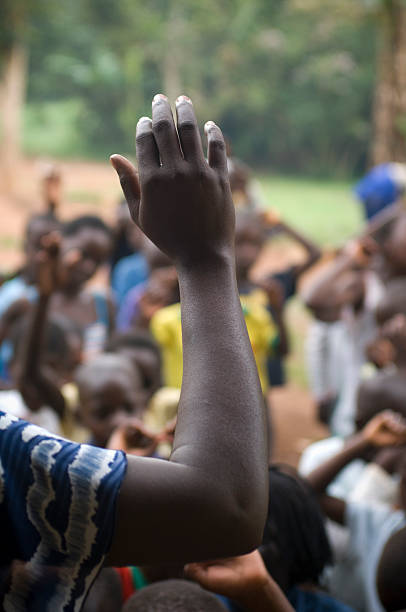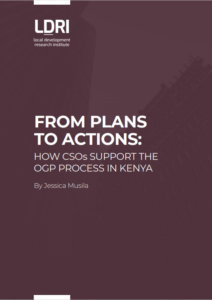![]()
Can the Spiral of Silence Undermine Open Government?

Open government initiatives are based on making governments more accessible, more responsive, more transparent, and more accountable to citizens. Citizen engagement and participation are central to these initiatives. There is a caveat however to this participation,which includes the ability of the public to freely speak and shape public policies they care about, and also to monitor and oversee governments free of threats.
In a forum organized by Mzalendo in partnership with Oxfam on how the petroleum sector can leverage OGP to enhance access to and information sharing, citizen participation was a central theme. Among the reasons given by different stakeholders on why a majority of Kenyans do not participate in salient government issues was the idea that their opinion does not count and the issue of inclusion of minority groups in public participation exercises. The frustration of Kenyans with the persistent increase of oil prices despite the low price per barrel of oil internationally throughout the year and the reaction of the government to their outcries is a testament to how much influence Public Opinion has on government activities.
The fear of not having an opinion that counts, fear of threats, or fear of isolation as Noel Neumann likes to put it in her theory of public opinion dubbed “The spiral of silence ” are some of the factors that undermine public participation in government processes and initiatives. According to Noelle Neumann people make decisions or pick a side by constantly assessing the climate of opinion which is the perceived majority of opinions of a given social group at a given time and the continuous threat of isolation. As an issue gains popularity so does the increasing fear of isolation leading to a scenario where the dominant opinion gains support from the Majority and the less dominant experience a downgrade establishing one opinion as the prevailing one. According to the theory, public opinion is the opinion that can be voiced in public without fear of sanctions and upon which action in public can be based. People will increasingly give an opinion on an issue if their opinion aligns with the majority and out of fear of being isolated from the dominant group they are likely to join the dominant group even if the popular opinion does not align with their values.
When looking at legislative processes such as elections or open contracting as an open government commitment one of the effects of fear of isolation is the emergence of Patron-client relationships. This refers to when the Patron i.e a person with greater status, influence, power, or authority grants favor to the client, i.e someone of lower status in return for loyalty, goods, political allegiance, etc. This, in turn, can cause reversals instead of gains in the OGP process.
How then do we enhance public participation in open government initiatives such as anti-corruption, so that citizens are able to report requests for bribes and embezzlement of public funds without the threat of losing their jobs as is the case in public service. How do we ensure government accountability? How do we ensure inclusivity of minority groups e.g. women and children in policies that affect them? How do we ensure no one gets left behind? How do we build back better in open contracting initiatives and beneficial ownership? Or does all this open Pandora’s box?
In looking at citizen engagement and public participation there is a continuous need to make our institutions credible, to ensure the public has access to timely data and information, there is a need for institutions to give feedback on issues they request the public to participate in and lastly, we need to remember that sometimes the minority constitutes the majority especially on issues that directly affect them.
References
E. Noelle-Neumann (1991) The Theory of Public Opinion: The Concept of the Spiral of Silence, Annals of the International Communication Association, 14:1, 256-287, DOI: 10.1080/23808985.1991.11678790



